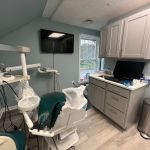Effective Sleep Apnea Treatment for Snorers: Solutions and Relief
- 1. Understanding Sleep Apnea and Snoring
- 2. Common Causes of Snoring and Sleep Apnea
- 3. Treatment Options for Snoring and Sleep Apnea
- 4. Real-Life Stories of Snoring Relief
- 5. Where to Find Effective Snoring and Sleep Apnea Treatment
1. Understanding Sleep Apnea and Snoring
Snoring is a common issue that affects millions of people, but when it is accompanied by pauses in breathing, it could be a sign of sleep apnea. Sleep apnea is a serious sleep disorder where breathing repeatedly stops and starts during sleep. People who suffer from sleep apnea often experience loud snoring, choking, or gasping for air during the night.
If left untreated, sleep apnea can lead to serious health problems such as high blood pressure, heart disease, and stroke. Therefore, it’s crucial to recognize the symptoms of sleep apnea and seek treatment. Fortunately, there are various sleep apnea treatments for snorers that can help alleviate symptoms and improve sleep quality.
2. Common Causes of Snoring and Sleep Apnea
Snoring and sleep apnea can be caused by a variety of factors. One of the most common causes is the relaxation of the muscles in the throat during sleep, which can cause the airway to become partially blocked, resulting in snoring or breathing interruptions. Other factors include obesity, nasal congestion, alcohol consumption, and sleep position.
For people with sleep apnea, these factors may exacerbate the condition. Sleep apnea can be classified into three types: obstructive sleep apnea (OSA), central sleep apnea, and complex sleep apnea syndrome. OSA is the most common form and occurs when the muscles at the back of the throat relax excessively, causing an obstruction in the airway.
3. Treatment Options for Snoring and Sleep Apnea
There are several treatment options available for snoring and sleep apnea, ranging from lifestyle changes to medical devices and surgical interventions. Here are some of the most effective treatments:
3.1 Lifestyle Changes
Making lifestyle adjustments can significantly reduce snoring and sleep apnea symptoms. These include losing weight, avoiding alcohol and sedatives, and sleeping on your side rather than your back. Regular exercise can also strengthen muscles in the throat, reducing the likelihood of airway collapse during sleep.
3.2 CPAP Therapy
The most common treatment for moderate to severe obstructive sleep apnea is Continuous Positive Airway Pressure (CPAP) therapy. This device uses a mask that delivers a continuous stream of air into the airways, keeping them open during sleep. CPAP therapy has been shown to be highly effective in treating sleep apnea and reducing snoring.
3.3 Oral Appliances
For those who cannot tolerate CPAP, oral appliances may be a suitable alternative. These devices, which are worn in the mouth during sleep, help reposition the jaw and tongue to keep the airway open. Oral appliances are often recommended for mild to moderate cases of sleep apnea and snoring.
3.4 Surgery
In some cases, surgery may be necessary to treat sleep apnea. Surgical options include procedures to remove excess tissue from the throat, reposition the jaw, or implant a device that stimulates the muscles to keep the airway open. Surgery is usually considered a last resort when other treatments have been unsuccessful.
4. Real-Life Stories of Snoring Relief
Many people have experienced significant improvements in their quality of life after seeking treatment for snoring and sleep apnea. For example, one woman struggled with chronic snoring for years, which disrupted her partner’s sleep. After consulting with a doctor, she started using a CPAP machine and saw an immediate improvement. Not only did her snoring stop, but she also felt more rested and energetic throughout the day.
Another individual who struggled with sleep apnea found relief through lifestyle changes and the use of an oral appliance. After losing weight and committing to a healthier sleep routine, his snoring was significantly reduced, and his sleep apnea symptoms improved. These real-life stories highlight the importance of seeking treatment for snoring and sleep apnea and how it can transform your sleep quality.
5. Where to Find Effective Snoring and Sleep Apnea Treatment
If you or someone you know suffers from snoring or sleep apnea, it’s important to seek professional help. A sleep specialist can help diagnose the severity of the condition and recommend appropriate treatment options. If you're looking for CPAP machines, oral appliances, or advice on lifestyle changes, many reputable suppliers offer these treatments online.
At 3d metal puzzle mechanical, while we focus on offering creative challenges like 3D puzzles, we also recommend seeking the help of specialized clinics and online resources for snoring and sleep apnea treatments. A comprehensive approach, including consultation with sleep specialists and considering CPAP therapy or oral appliances, will provide the most effective relief.
Interested in learning more about effective treatments for sleep apnea and snoring? Visit a local sleep clinic or explore trusted online suppliers for the right solutions to improve your sleep quality.







 Duxbury Dental4.0 (71 review)
Duxbury Dental4.0 (71 review) First Choice Dental- Madison Campus4.0 (184 review)
First Choice Dental- Madison Campus4.0 (184 review) Pavilion Dental Group4.0 (151 review)
Pavilion Dental Group4.0 (151 review) Smile Center3.0 (38 review)
Smile Center3.0 (38 review) Porcelain Veneers Teeth5.0 (28 review)
Porcelain Veneers Teeth5.0 (28 review) Starr Valley Dental5.0 (48 review)
Starr Valley Dental5.0 (48 review) The Importance of Oral Health Education During Pregnancy for a Healthy Pregnancy
The Importance of Oral Health Education During Pregnancy for a Healthy Pregnancy Best Tips for Brushing Your Teeth Properly for Healthy Gums: Essential Techniques for Oral Health
Best Tips for Brushing Your Teeth Properly for Healthy Gums: Essential Techniques for Oral Health Why Skipping Dental Checkups Can Lead to Bigger Oral Health Problems
Why Skipping Dental Checkups Can Lead to Bigger Oral Health Problems Advantages of Porcelain Dental Restorations
Advantages of Porcelain Dental Restorations How Can Diabetes Cause Tooth and Gum Problems? Preventing and Managing Oral Health Issues
How Can Diabetes Cause Tooth and Gum Problems? Preventing and Managing Oral Health Issues Healthy Habits for Promoting Good Oral Health and Hygiene: Tips for a Healthy Smile
Healthy Habits for Promoting Good Oral Health and Hygiene: Tips for a Healthy Smile